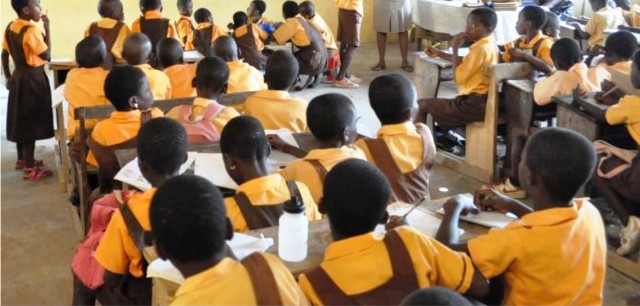Editorial
Ensuring Standards In Private Schools

The recent move by the Rivers State Government to ensure that proprietors of private educational institutions in the state strictly comply with laid down standards for quality education delivery, particularly at the primary and secondary levels, is commendable and in tandem with the NEW Rivers Vision.
At a recent meeting with proprietors of private schools held in Port Harcourt, Rivers State Governor, Chief Nyesom Wike made it clear that henceforth, all private schools operating in the state would be issued temporary approval/ licence which would be reviewed periodically to ensure that standards are not compromised as had been the case in the past.
Governor Wike explained that over the years, most schools had compromised standards just because they were issued timeless approvals which tend to rubbish the state government’s vision for the delivery of quality education.
The State Chief Executive affirmed that the state government would make periodic supervision and monitoring of schools a regular feature to ensure that private schools maintain acceptable manpower, infrastructural facilities and conducive environment for effective learning and teaching.
The Tide endorses the Rivers State Government’s position and urges private schools operators to embrace the new policy as it is capable of enhancing the quality of education in the state. The trend whereby unsuspecting parents are regularly burdened with the imposition of unjustifiable fees on students must no longer be encouraged.
As much as we appreciate the contributions of private schools to the socio-economic well-being of the society, it is equally important to observe that they can not be entirely left to exploit pupils and parents unjustly. Unfortunately, overtime, lack of government’s adequate attention to the operations of private schools, has inflicted untold hardship on helpless parents. The fact that private schools, including those that lack the required standards, enjoy the impunity of imposing illegal fees on parents, is worrisome.
It is against this backdrop that we applaud the new policy of the state government to issue temporary approval/licence that will be reviewed periodically to ensure that standards are no longer compromised. In implementing the policy, the maintenance of good hygiene and all that is required for a conducive environment for learning must be strictly enforced. Schools that need to be relocated for lack of adequate space should be relocated.
We enjoin the state government to make good its decision by making public all government approved fees for registration for the West African School Certificate (WASC) and the National Examination Council (NECO) examinations, regularly. That way, parents can be better equipped to resist the imposition of additional fees on them by private schools operators.
While enforcing the new policy and regulatory framework to get private schools operate effectively and efficiently, efforts should also be made towards ensuring that the operations of private schools do not undermine public schools. One measure through which this can be achieved is for government to obtain comprehensive statistics of approved schools and the permanent closure of all private schools operating illegally in the state.
Also, government should take an appraisal of the activities of officials of the Inspectorate Division of the State Ministry of Education with a view to overhauling the entire system to eliminate bad eggs who compromise standards for selfish gains. The new vision of the present administration to deliver good education to the people may likely be hampered, if at this age, illegal schools are allowed to operate in the state.
It also behoves the legal private schools to comply with the new policy of government by discharging their responsibilities with transparency. They must be prompt and sincere in remitting all taxes, including income tax deducted from their staff into the coffers of the state government to assist government carry out its own responsibilities.
We urge the state government not to relent in its effort at enhancing the adequacy and quality of public education as well as improving the system principally with regard to teachers’ welfare and motivation side by side the regulation of private education in the state.
Education as a life-enhancing horizon broadening experience deserves the attention given to it now by the Governor Wike administration to take Rivers State to the next level of development. All hands must therefore be on deck to make the new policy succeed.
Editorial
HYPREP And The Collapsed Water Tank

Editorial
Resurgence Of Illegal Structures In PH
Editorial
Certificate Forgery, Loss Of Public Trust

-

 Niger Delta5 days ago
Niger Delta5 days agoBayelsa’s Aircraft Makes Inaugural Flight…As Lawmakers, Oil Minister, NDDC’S MD Hail Diri
-

 Featured21 hours ago
Featured21 hours agoOil & Gas: Rivers Remains The Best Investment Destination – Fubara
-

 Nation1 day ago
Nation1 day agoOgoni Power Project: HYPREP Moves To Boost Capacity Of Personnel
-
Nation1 day ago
Hausa Community Lauds Council Boss Over Free Medical Outreach
-
Nation1 day ago
Association Hails Rivers LG Chairmen, Urges Expansion Of Dev Projects
-
Nation1 day ago
Film Festival: Don, Others Urge Govt To Partner RIFF
-
Rivers1 day ago
UNIPORT Moves To Tackle Insecurity … Inducts Security Experts
-

 News1 day ago
News1 day agoHYPREP Tightens Security At Project Sites

